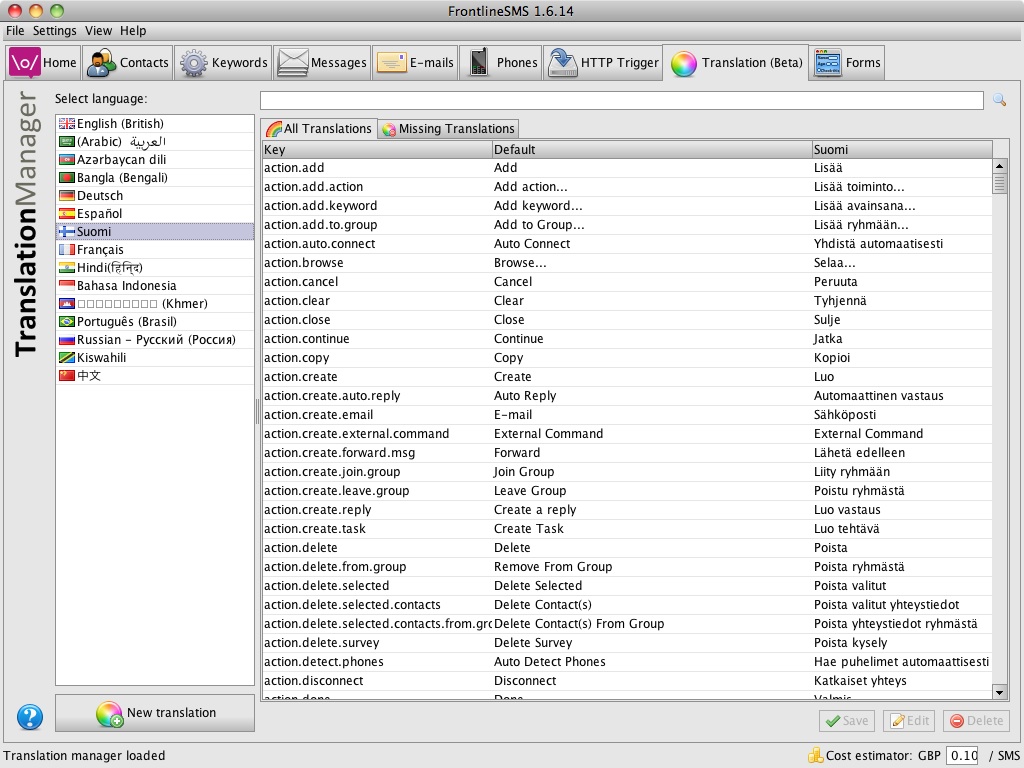Friday morning saw me zooming up Portobello Road in west London, cursing the tourists and looking forward to a large flat white with some new acquaintances - I was meeting with a couple of people have just started to use FrontlineSMS for campaigning. This is an increasingly common, and always delightful, part of my job. I generally pepper people with questions, exclaim 'that's interesting' every ten seconds, and scribble furious notes. Often, people ask for advice - what's the best way to fit this into our programme? How should we pilot? How much will it cost? The thing is, I'm not the expert, hence all my questions - but I know where to find the real pros.

FrontlineSMS are a diverse bunch, based all over the world, as our new Member Map is beginning to show. You're working on projects in all sorts of fields, from safe motherhood, to community cohesion, to citizen journalism, to minority rights activism, and all points between and beyond. And YOU are the FrontlineSMS implementation experts. We know the theory, and of course we know the software, but there's no substitute for experience when it comes to finding ways around the real world pitfalls and problems that users encounter. So if anything, I'm less an expert myself, and more of a matchmaker, linking people using FrontlineSMS in similar ways; or a librarian, remembering stories of past solutions and pointing them out to people encountering a similar problem.
So where do we find these examples? Well, face to face meetings are probably the richest way for us to find out what you're up to. We'll go anywhere! Send us an email and we'll hop on a plane, train or death-defying local form of motorbike transport and come see you. Failing that, we often give examples from our guest posts, or from email correspondence with unfailingly generous people all over the world who have millions of things to do, and yet still find the time to sit down and tell us what they're up to.
We're also working with a couple of our users to write up glossy, jointly-branded case studies, which get into a bit more technical detail than a guest post can, try to show the impact FrontlineSMS has had, and even list local suppliers. The idea is that FrontlineSMS users should be able to use these documents themselves to explain the SMS portion of their project to their own donors and stakeholders. They'll also be an invaluable resource for others looking to implement a similar programme. Watch this space for the first case study in the next few weeks.
At a more basic level, we need more data about who's using FrontlineSMS - we need to know who you are, where you are, and what you're doing. People like numbers - what, where, how many. For this reason, we added a small tool to a recent version of FrontlineSMS that offers to send back anonymised statistics to us (more on that in a future blogpost, as they've only just started to come in).We'll also be running a user survey in September to try and get a better picture of how FrontlineSMS is being used. Finally, in 2011 we'll be working on allowing you to register your copy of FrontlineSMS.
All this information gathering has three purposes:
- We find that it's only when we get to know you that we start to hear what we should be improving, what not's working, what else we should add. All the new features we've added (Translation Manager, Forms, and the HTTP trigger) have been in response to your feedback. And it's only when you tell us that we know something's not working - users reported a problem with the software on Monday morning, and we had it fixed and a new version uploaded within a few hours.
- As I said above, you're the experts. Hearing from you means we can share more with other users, and help give people ideas for how to use FrontlineSMS in their own work.
- We can explain to our donors and supporters what FrontlineSMS is achieving in the world, which enables them to keep supporting us, and in turn, lets us keep doing all the things we do to keep FrontlineSMS evolving and keep the community flourishing.
Your stories keep us improving; keep us innovating; and keep the lights on in the office. Better still, they help inspire other users. Do you have a story to tell?





